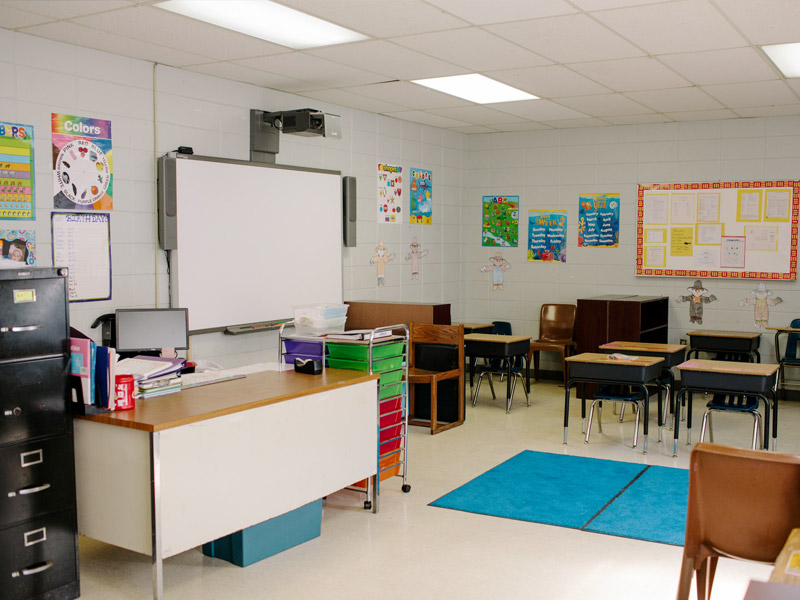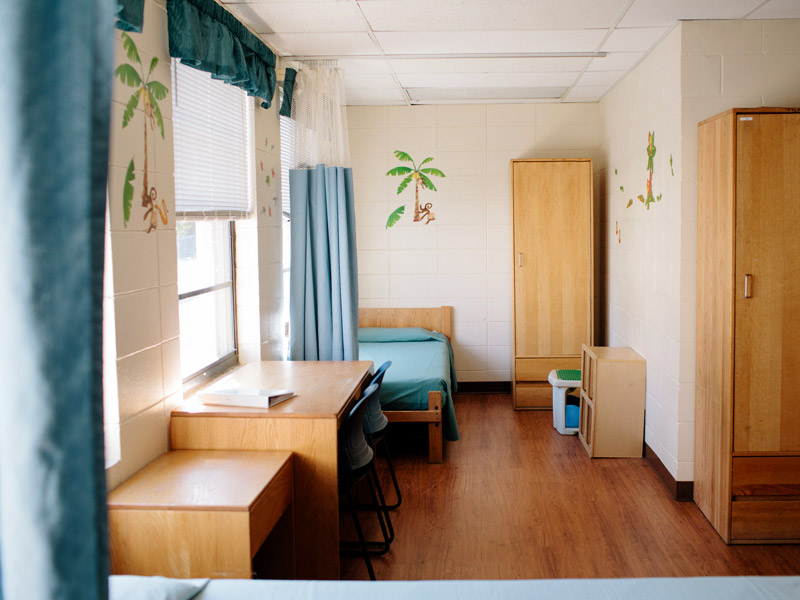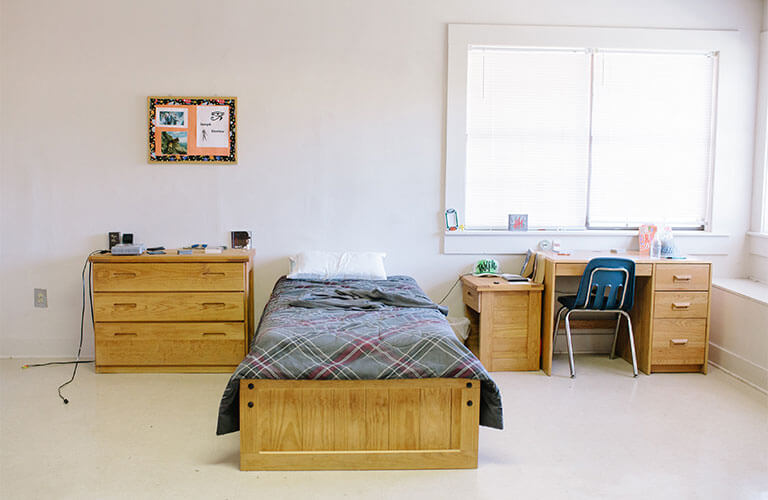Millcreek of Magee Treatment Center offers residential treatment and home-based programs for children & adolescents struggling with IED and other psychiatric and behavioral disorders.
Learn About IED Treatment
Learn more about IED treatment at Millcreek of Magee Treatment Center in Mississippi
At Millcreek of Magee, an intermittent explosive disorder treatment facility in Mississippi, we take great pride in the fact that our staff is able to afford children and adolescents superior treatment for several emotional, behavioral, and cognitive concerns. We recognize the importance of catering treatment to meet the needs of young people, which is why we offer specialized programming that is designed to meet the needs of youth who are struggling with intermittent explosive disorder (IED). Children and adolescents who have IED engage in repeated episodes of aggressive, violent, impulsive, and angry behaviors and verbal outbursts that are severely out of proportion to any given situation. Such outbursts also occur without provocation and without consideration to the potential negative repercussions that can result from the behaviors. However, when children or adolescents are struggling with intermittent explosive disorder, they typically experience feelings of remorse and embarrassment following their outbursts. While the presence of this mental health condition can elicit a number of detrimental consequences in a child’s life, there is treatment available that can prevent future detriments.
The IED treatment center at Millcreek has been a leading provider of behavioral healthcare and educational services to emotionally disturbed and developmentally delayed children and adolescents in the state of Mississippi for over 30 years. Maintaining our facility’s standing as the largest private provider of services to children and adolescents in the state, we strive to provide programming that emphasizes the individualization of IED treatment based on each child’s strengths. Our highly trained and qualified IED treatment center’s staff works towards increasing the self-esteem of all children who are entrusted into our care in order to build their confidence and increase their ability to successfully navigate through treatment. When children and adolescents come to us struggling with the symptoms associated with intermittent explosive disorder, we will do everything in our power to help them overcome their challenges while also teaching them the skills needed to embark on a bright and successful future.
How to Help a Loved One
Helping a loved one get treatment for IED
Caring for a child or adolescent who has intermittent explosive disorder can bring about a vast array of emotions, ranging from anger and frustration to fear of how your child will react to any given situation. You are likely also experiencing a great deal of concern about what the future holds for your child if such behaviors do not cease. While you may be overwhelmed and feel helpless as to what you can do for your child or adolescent, there are steps that you can take in order to get your child on track for finding healing. Consider the following:
- Learn all that you can about intermittent explosive disorder because the more knowledge you have, the better able you will be to support your child. Having such knowledge will allow you the ability to recognize symptoms and understand the best ways to handle those symptoms, while also affording you an overall understanding that can allow you empathize with your child.
- Research IED treatment facility options that are designed specifically to address the needs of children and adolescents.
- Anticipate resistance to participating in an IED treatment center, but continue to calmly explain to your child the benefits that getting treatment can have on their life.
- While it can be extremely difficult at times, do your best to remain patient with your child or adolescent and avoid being judgmental.
- Give your child a safe environment in which they can feel comfortable expressing their own frustrations and negative emotions. Refrain from minimizing those feelings.
- Be an active part of your child’s IED treatment process, remaining unconditionally supportive.
Why Consider Treatment
Why consider treatment for IED at Millcreek of Magee Treatment Center in Mississippi
Children and adolescents who are suffering from intermittent explosive disorder who are denied the ability to engage in an IED treatment facility are likely to face monumental struggles throughout their lives. They may find it difficult to perform appropriately at school, often facing disciplinary action as a result of their acting out behaviors. They may experience great difficulty in forming and maintaining healthy interpersonal relationships as their moods and behaviors prevent them from doing so. Furthermore, the longer that symptoms persist, the more likely they are to worsen, potentially resulting in legal consequences.
Our residential IED treatment center has proven to be extremely effective at fostering wholly therapeutic environments in which children or adolescents with IED can work towards true healing and recovery. In this setting, children or adolescents monitored 24 hours a day, 7 days a week by our IED treatment center’s highly trained and qualified mental health professionals who can provide support and therapeutic interventions. Additionally, in this setting, children and adolescents in our treatment facility are given the opportunity to work with peers who are facing similar struggles, increasing their self-esteem by proving to them that they are not alone. By taking part in a number of different therapies and treatment modalities, these children and adolescents are taking the first step towards living a happier, healthier, and brighter future; a future that they deserve.
Our Philosophy
Millcreek of Magee Treatment Center philosophy and treatment benefits
At Millcreek of Magee, an IED treatment facility in Mississippi, we are dedicated to helping children lead healthier, more productive lives. By offering programming that places a strong emphasis on a child’s inherent strengths, our caring and compassionate staff at our facility tailors individualized IED treatment plans. We strive to consistently encourage the growth of your child’s self-esteem and enhance their level of self-confidence and independence by developing activities that are based specifically on each patient’s strengths. Each child’s or adolescent’s IED treatment process remains malleable as we incorporate changes based on needs or challenges as they arise. We also place a strong emphasis on the educational aspect of treatment at our facility, keeping in mind the crucial role that education plays in a child’s development and on their future. At our IED treatment center in Mississippi, we are devoted to consistently improving our treatment by persistently addressing any requests, concerns, or issues that are brought forth in our patient surveys. Our patients are our top priority and we make it our sole mission to do all that we can to ensure their lasting success.
Types of Treatment
Types of IED treatment offered at Millcreek of Magee Treatment Center in Mississippi
At our IED treatment center in Mississippi, we strive to offer excellent customer service to everyone with whom we come in contact. We pride ourselves in our quick response to inquiries and referrals, and our facility’s admissions staff works diligently to ensure that a smooth and timely transition into our care is offered for all potential patients. Once children have been admitted into our psychiatric residential IED treatment center, they will partake in a number of therapeutic interventions that are tailored to meet each of their specific needs, while simultaneously enhancing and building upon the strengths they already possess. We use a cognitive behavioral approach to therapy in our programs here at our IED treatment facility at Millcreek, which ensures that maladaptive thinking patterns are changed and positive behaviors are reinforced. Research-based journaling is utilized throughout individual and group therapies, which assists patients as they find success in their own treatment path.
The dedicated staff at Millcreek in Mississippi is proud to offer a positive-reinforcement based approach to care, guiding patients as they work through a Phase System throughout the course of treatment. This Phase System includes four distinct phases, Exploration, Knowledge, Motivation, and Achievement, and is accompanied by identified safety levels that rewards children or adolescents on their progress through IED treatment in our treatment facility. Such progress is acknowledged through each patient’s journaling and includes helping children identify triggers that lead to their behaviors, as well as helping them come to understand the importance of accepting the consequences of their behaviors.
The following therapeutic interventions are incorporated into the overall, comprehensive care provided to patients in our psychiatric residential IED treatment facility:
Medication management: In some cases, children who are suffering from intermittent explosive disorder may find relief from their symptoms through the implementation of certain psychotropic medications. Such needs will be determined on an individualized basis. We have board-certified child and adolescent psychiatrists on staff at our treatment center on call 24/7, as well as psychiatric nurse practitioners and family physicians who are available to meet any needs that our patients may have. Children or adolescents are seen at least once each week for medication management.
Individual therapy: Individual therapy sessions are designed to be a time for children or adolescents to meet one-on-one with their therapists at our IED treatment center in order to track treatment progress, discuss any concerns or challenges they are facing, and to work on individual skill-building. These sessions occur at a minimum of once each week, but most patients benefit from additional sessions, as determined based on need or when requested.
Group therapy: Group therapy sessions occur in our IED treatment facility at least thrice a week, but are typically held more often. All group sessions are individualized based on the needs of the children present, but common topics of discussion include anger management, coping skills, relationships, independent living skills, trauma, and patient/student rights.
Family therapy: At our IED treatment center in Mississippi, we recognize how important family involvement is in a child’s healing process and therefore hold family therapy sessions at a minimum of twice per month. We also allow children the ability to make phone calls or visit with their family on a regular basis, ensuring that all family involvement is individualized in order to promote the most positive interaction possible for our patients and their families.
Education: All patients attend our facility’s onsite school Monday through Friday from 9am-3pm. All classes are led by Highly Qualified Licensed Teachers and classrooms have a student to teacher ratio of 10:1 maximum. There is at least one therapeutic aide present in all classrooms and one-to-one aides are provided for children when necessary.
Experiential therapies: In order to provide a fully holistic approach to IED treatment, our treatment center offers a number of additional therapeutic options on top of the traditional therapeutic methods. Such options include:
- Recreational therapy (held daily for all patients)
- Music therapy (including individual music and choir dance)
- Art projects
- Fitness club (intensive fitness programming is offered along with nutritional education)
- Walking club
- Book club
- Gym time (including activities such as flag football, volleyball, etc.)
Continuing Care
Continuing care and levels of treatment for IED
At Millcreek of Magee, a behavioral disorders treatment facility in Mississippi, we understand how intimidating the end of IED treatment can be for many children and their families. For this reason, all discharge and aftercare planning begins at the time of admission. Appropriate discharge criteria is created for each patient depending upon their needs and treatment goals. Once that criteria has been successfully met, the patient’s treatment team works with him or her as the next, most appropriate level of care is determined. Aftercare planning includes recommendations from the patient’s treatment team for medical, educational, and psychiatric services. Our staff at our treatment center will do everything in our power to ensure that the transition back into a less restrictive setting is a smooth and comfortable one for all parties involved, knowing that the most important thing is that your child continues to be successful.



